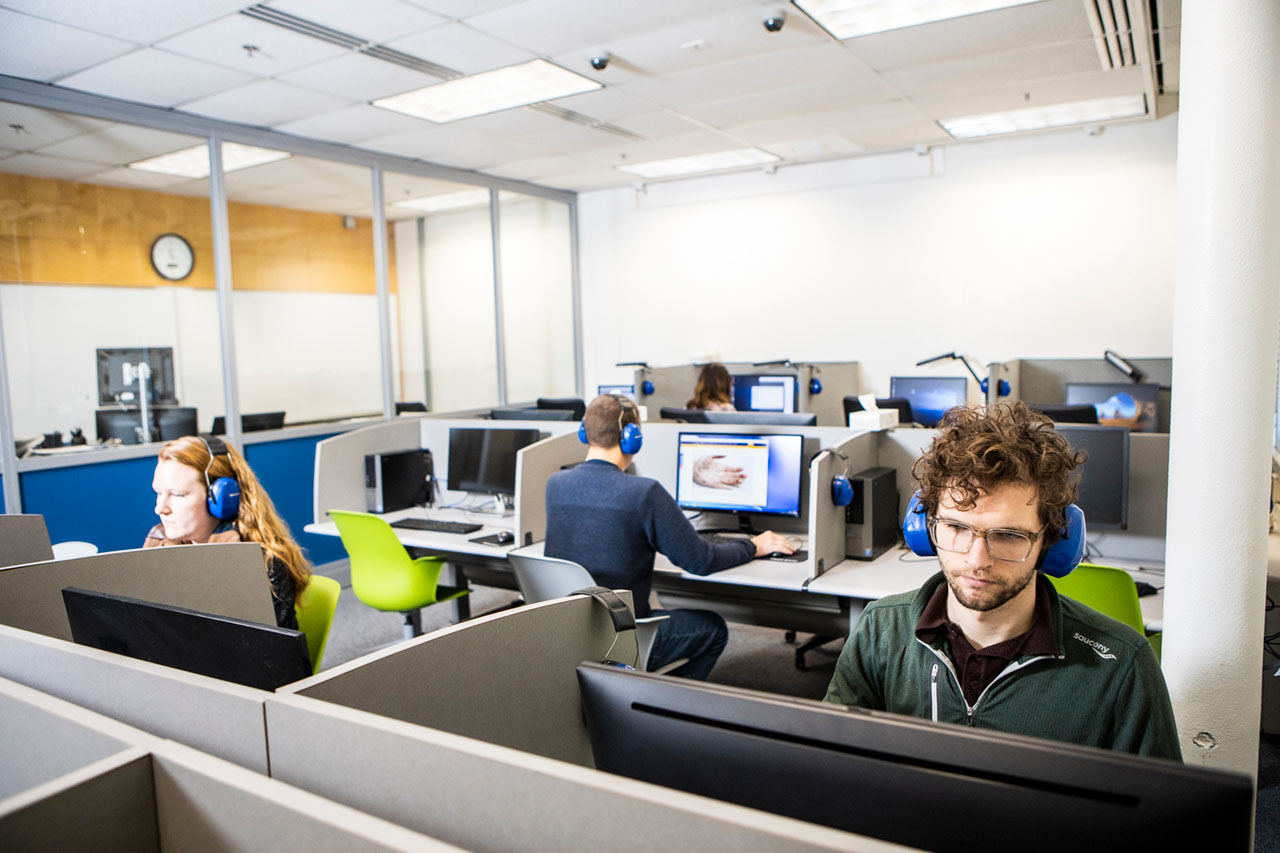
Should you require proctored exams?
For in-person classes, proctoring exams is a no-brainer. You simply stay in the room while the students take the exam during regular class hours and glance around occasionally for signs of cheating.
In the quest to make online courses equally rigorous as in-person courses, proctoring has been imported wholesale, sometimes without considering whether it is the best fit for an online class. There are plenty of cases where a proctored exam is necessary, however, instructors should pause to consider the barriers presented by proctoring for students, especially if they are considering more than one or two proctored exams.
What It Takes
Given that many of our online students balance school with full-time jobs, childcare responsibilities, overseas deployments and athletic travel, here’s a run-down of what it takes to sit for a proctored exam at UAF.
a. For Fairbanks students: Schedule time off work and/or childcare. Drive or take public transit to the UAF CTL Exam Center during business hours, or until 7 p.m. on Wednesdays or Thursdays. Find (and often pay) for parking. Take the test.
b. Students outside of Fairbanks do all of the above, but must also: Find a testing center or verified proctor and arrange their exam two weeks in advance. In some locations, they pay to take the exam — usually $15 to $30.
c. Exams within Blackboard (not paper exams) are eligible, at the instructor’s discretion, for virtual proctoring via RPNow. This service allows them to take their exam anywhere, at any time of day, for a $15 fee. Students need a laptop with a webcam and must follow these 11 pages of instructions. Despite the restrictions, this flexibility is valuable for many students, but less than 10 percent of CTL exams were taken through RPNow last year.
You can see how this is a hassle (but a fairly reasonable one) if there are one or two proctored exams in a semester. But if there are four, six, 10 proctored exams? That adds a layer of logistical difficulty and expense that will affect students unequally depending on their circumstances.
Do You Even Need Proctored Exams?
Formal exams are less common in the humanities but even in disciplines that have traditionally relied on exams, there is ample research on alternative assessment design that will “naturally” decrease students’ incentive to cheat. (Here’s a great summary of that research from Oregon State!) Others have studied how shifting away from high-stakes exams can improve retention, decrease testing anxiety and improve outcomes for women and other marginalized groups. Here are some alternative assessment strategies that could make proctoring unnecessary for your course:
- Distributed Practice: Students are less incentivized to cheat if their grade is not riding on one or two big exams. Having smaller, more frequent exams throughout the semester improves retention as well.
- Creative Questioning: Replace multiple choice with short answers, essays, drawings, etc. Include questions that draw on higher-order thinking skills — for example, synthesizing two concepts instead of recalling facts.
- Project-Based Learning: The University of Maryland Global Campus has been replacing proctored exams with projects in their online degree programs “in an effort to shift the learning model toward the priorities of its students,” many of whom are working professionals or in the military.

